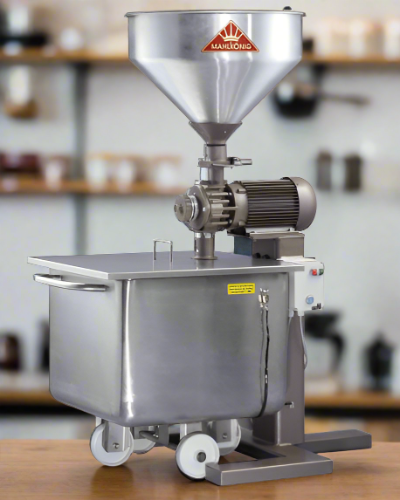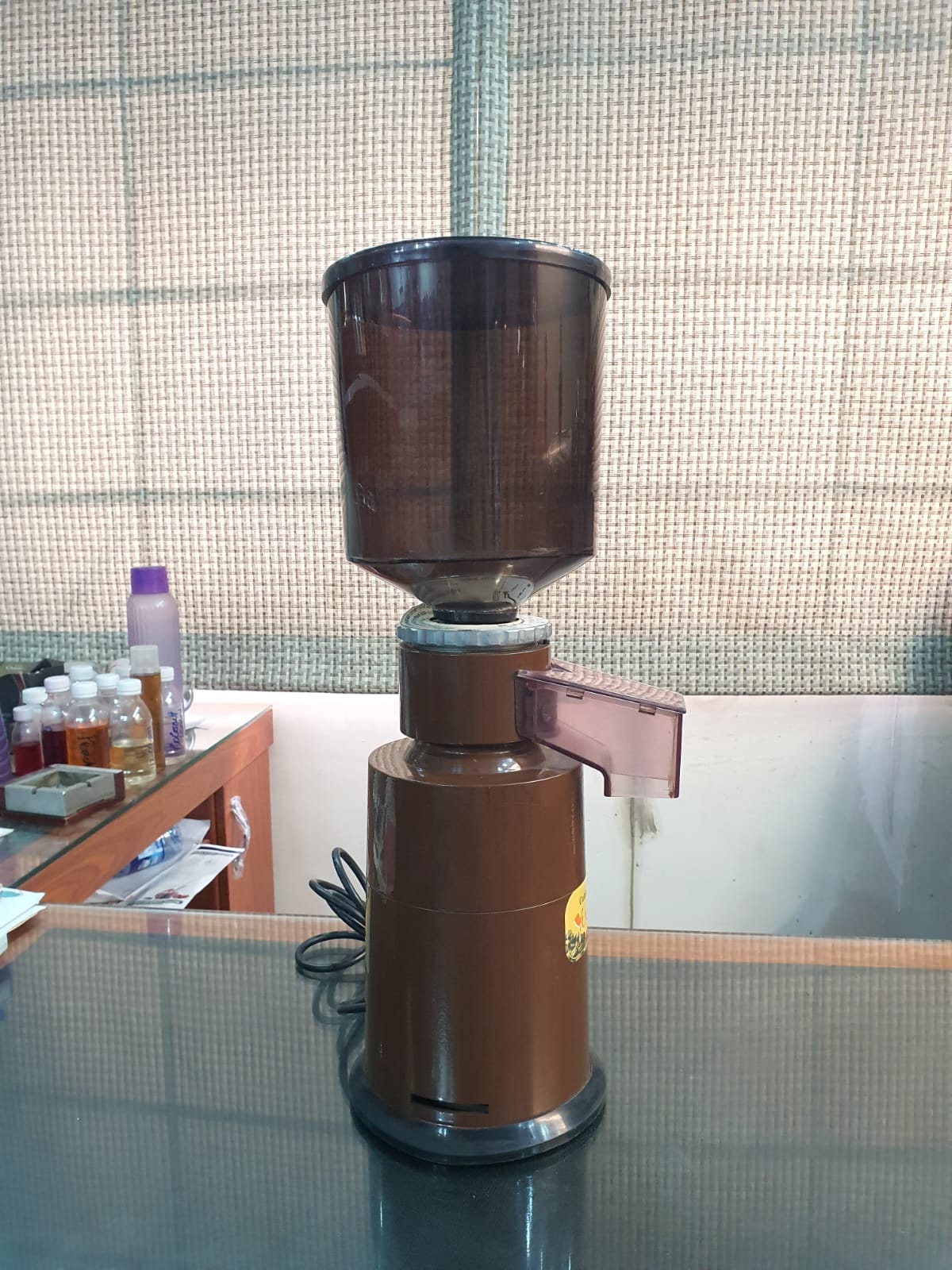Industrial Coffee Grinder: Price, Durability, and Performance Compared
Industrial Coffee Grinder: Price, Durability, and Performance Compared
Blog Article
How to Choose the Perfect Industrial Coffee Grinder for Your Business
Choosing the suitable commercial coffee grinder for your company is a diverse choice that calls for careful consideration of several important aspects. In addition, comprehending the numerous types of mills offered can substantially influence your operational efficiency.
Assess Your Grinding Requirements
When picking an industrial coffee mill, one must first assess their grinding needs to ensure optimal performance and consistency. This first assessment entails comprehending the volume of coffee to be processed daily, in addition to the preferred work dimension for different brewing approaches. A high-capacity grinder might be needed for services offering large amounts of coffee, while smaller sized procedures might locate a more portable design adequate.
Additionally, it is important to take into consideration the sorts of coffee beans being used, as different beans might need specific grinding techniques to achieve the most effective flavor profile. As an example, oily beans could require a mill made to take care of such qualities without overheating or clumping.
An additional essential element is the required grind consistency. Specialized coffee companies often demand precise grind dimensions to boost extraction and taste, making it crucial to select a mill that can supply uniform results. Reviewing the available space and electric needs will certainly aid in selecting a grinder that fits flawlessly into your functional process. By extensively examining these elements, businesses can make educated decisions that align with their coffee grinding demands, inevitably causing a remarkable product and pleased customers.
Understand Mill Types
Understanding the various sorts of commercial coffee grinders is vital for making a notified choice that meets certain operational needs. There are mostly two categories of grinders: blade mills and burr grinders.
Blade mills use rotating blades to chop the coffee beans, leading to an irregular work size - Industrial Coffee Grinder. While they may be a lot more affordable, they are usually not appropriate for industrial applications where accuracy is crucial
On the various other hand, burr mills supply a more consistent work by crushing the beans in between 2 surfaces. They can be additional classified right into flat burr and conelike burr mills. Apartment burr mills use a constant work dimension and are usually preferred for espresso prep work, while conical burr grinders are flexible and can manage a variety of brew methods, from espresso to French press.
When picking a mill, take into consideration the particular demands of your service, including preferred grind consistency, manufacturing quantity, and the kinds of coffee beverages you intend to provide - Industrial Coffee Grinder. Each mill type has its constraints and benefits, so understanding these nuances makes it possible for educated decision-making that aligns with operational goals
Evaluate Grind Size Consistency
Accomplishing work dimension consistency is necessary for producing top notch coffee, as variations in particle dimension can substantially affect removal and flavor. When selecting a commercial coffee grinder, it is crucial to examine exactly how well the machine keeps harmony in grind dimension throughout various batches. Irregular work sizes can result in irregular removal, resulting in a mug that may taste weak or extremely bitter.
To analyze grind dimension consistency, consider mills with attributes such as flexible grind settings and top notch burrs. Burr mills, specifically, excel in creating consistent fragment dimensions contrasted to blade mills. The product and form of the burrs play a crucial duty, with stainless steel and ceramic alternatives offering durability and precision.

Take Into Consideration Production Capacity
In the busy globe of coffee manufacturing, taking into consideration production ability is critical for services aiming to satisfy need without compromising high quality. The production capability of an industrial coffee mill directly influences a firm's capability to meet orders successfully, take care of stock, and react to rising and fall market patterns.
When evaluating manufacturing ability, it is necessary to review the grinder's result price, generally determined in pounds per hour. This dimension needs to straighten with your business's projected sales quantity and growth targets. For circumstances, a café with a high turn over might call for a grinder that can process a number of hundred extra pounds daily, while a smaller sized operation could be sufficient with a lower capacity version.
Additionally, think about the type of coffee being processed. Different beans and blends might influence grinding rate and effectiveness, requiring a grinder qualified of handling varied production demands. It's also worth considering the mill's capability to keep consistent high quality under high output conditions, as any kind of fluctuations can influence the final product.
Eventually, selecting a grinder that matches your organization's production capacity will certainly guarantee you remain responsive and competitive to client expectations.

Budget Plan and Maintenance Aspects
When evaluating the right commercial coffee budget plan, mill and maintenance variables website here play a substantial function in the total decision-making procedure. A first investment in a top notch grinder can generate long-lasting benefits, but it's important to develop a clear budget that lines up with your company's operational needs. Think about both the purchase rate and prospective functional costs, such as power usage and substitute components.
Upkeep is another vital element that can affect your spending plan. Industrial coffee grinders call for normal upkeep to guarantee ideal performance and durability. Evaluate the maker's suggestions for upkeep, including cleaning timetables and parts replacement, as these will impact long-lasting operational costs. Additionally, think about the availability of solution and support, as trustworthy aid can mitigate downtime and fixing expenditures.

Buying a mill that is sturdy yet very easy to maintain can save money over time. While lower-priced alternatives may be appealing, they might sustain higher maintenance expenses and reduced effectiveness. Inevitably, stabilizing first prices with lasting upkeep and functional effectiveness will certainly assist you to the very best option for your company's coffee grinding requirements.
Verdict
Picking the ideal commercial coffee grinder necessitates a complete analysis of grinding requirements, grinder kinds, grind size consistency, production capability, and budgetary factors to consider. A well-chosen grinder not only boosts the top quality of the coffee generated however likewise contributes to the general success and profitability of the enterprise.
Specialty coffee companies typically require specific work sizes to improve extraction and flavor, making it important to choose a mill that can supply consistent results. Flat burr grinders use a regular grind dimension and are normally preferred Your Domain Name for espresso prep work, while conical burr grinders are flexible and can manage an array of brew methods, from coffee to French press.
When picking an industrial coffee grinder, it is important to assess just how well the device keeps uniformity in grind size across various batches. Burr grinders, in particular, stand out in creating consistent fragment dimensions contrasted to blade grinders.Selecting the suitable commercial coffee grinder requires a thorough assessment of grinding demands, grinder kinds, grind dimension consistency, manufacturing ability, and budgetary considerations.
Report this page